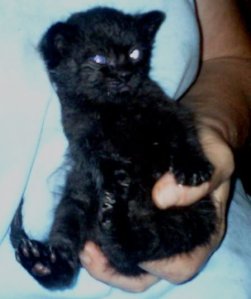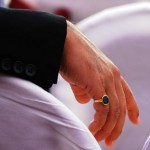My family’s most diligent deceit never worked on me. My father told me not to worry about money. My mother told me that my focus should be on getting an education. They both told me that they didn’t want me to end up the way they did, ensnared in a financial trap. They told me to let them worry about the bills and that it wasn’t my responsibility as a daughter to support us in the first place. But I knew that my going off to college would take a financial toll on my family, and I was right. After all, I was the one making the car payment.
The first semester of college was both euphoric and terrifying. I worked around the clock on my coursework and established myself as the president of my college’s History Club. I vowed to do everything in my power, to sniff out every opportunity and seize any that dangled within reach. I was pegged an overachiever before the first grades were in. But I still struggled with the knowledge that I had been an essential contributor to the family income. Within months of my departure for college, our car was repossessed. I took the news like a hard left to the nose. I had seen it coming, prepared myself for it, tried to prevent it by talking to my parents, but ultimately took their advice and plunged ahead into higher education. And we all had a price to pay.

Another blow came a month later. My mother called in tears to tell me that one of our three kittens, Alvin, had been killed – hit by a car on our terrible street. We had nursed the kittens from the age of three weeks, when my father found them abandoned in his industrial shop. I’d bonded with one that I called Theodore, a little black kitten with a very long tail.
Theo followed me everywhere. He sat on my lap when I played video games. He would gaze up at me with happy eyes and drool on himself a little, bumping his head against my chin in that silly way cats do. He was ridiculous. He was adorable. He was mine.
I had promised myself from the moment he lay upside down in my arms, suckling on a doll bottle filled with kitten formula, that I would never show him anything but love. This kitten never heard a disapproving word in his life. He was never pushed away. He was never left alone. I kept him indoors, so he would never be exposed to the dangers of the great big world. And then I went to school.
As soon as my mother’s words sputtered through the staticky phone line, I felt my heart turn to stone. Alvin was a black kitten. My mother could never tell the two of them apart. I asked for a ride home and found what I had most hated to suspect was true: Theo was dead. Hit by a car. The moment I left, he was gone.

Did he die trying to find me? I thought, sobbing hysterically. (This thought has never gone away, or ceased to hurt.)
My parents had already buried him by the time I got home. I stared vaguely at the woods where they said he rested, arranged some stones as a memorial. I felt empty.
Eight years later, I still wake up crying for him. My perfect, adoring, silky black kitten had never lived to see his first birthday. If I hadn’t gone, he would have. He would be with me right now, purring on my lap and probably drooling on my knee like a happy fool. The first little creature that loved me and depended on me completely. I had failed him in the worst possible way, left him in abandonment and death.
Going to college was my escape. It was my only way to survive. But it came at a cost I can’t forget. A little creature I had nurtured nearly from birth, who had loved and trusted me completely and spent every waking moment in my arms, was dead. The car my mother and I shared had been taken away. The church bought my mom a $300 car so she could go to work, and there were reasons it cost so little. Soon afterwards, my father became sick. Not just sick, but utterly incapacitated. Bedridden. Unable to eat. After weeks of endless vomiting and the loss of half his body weight, he lost his job, and with it, his health insurance. Then the landlord took the doors off my parents’ house in the middle of the night.
I looked at this train wreck from my precarious perch in a college dorm and felt crushed with guilt. I had made this happen. If I had stayed home, I could have stopped all of it. As I sat, hyperventilating, on my bed, I decided to reach out to the only person I knew who cared.
Sven answered the phone in surprise. I had never called before unless we were arranging to meet, with pre-established plans vetted by his mom.
“Theo is dead,” I blurted, bursting into tears despite my carefully crafted composure.

Silence greeted me.
“I don’t know what to say. I never know what to say in these situations,” he said uncomfortably.
More silence.
Something hardened in me. I forced the rock in my throat back down to my chest, straightened my shoulders. I apologized for bothering him, and snapped my phone shut. I had launched out into the ocean on my own, and there was no one else to help me through the storm. My only choice was to confront the waves head-on. I still had my rudder, but I was decidedly alone on the sea of dreams.
Then the final mooring snapped.
And the sea of dreams started to look more like an inky black pool of nightmares.

I will probably never stop saying this:
Theo, I’ll always love you. I’m so sorry.











